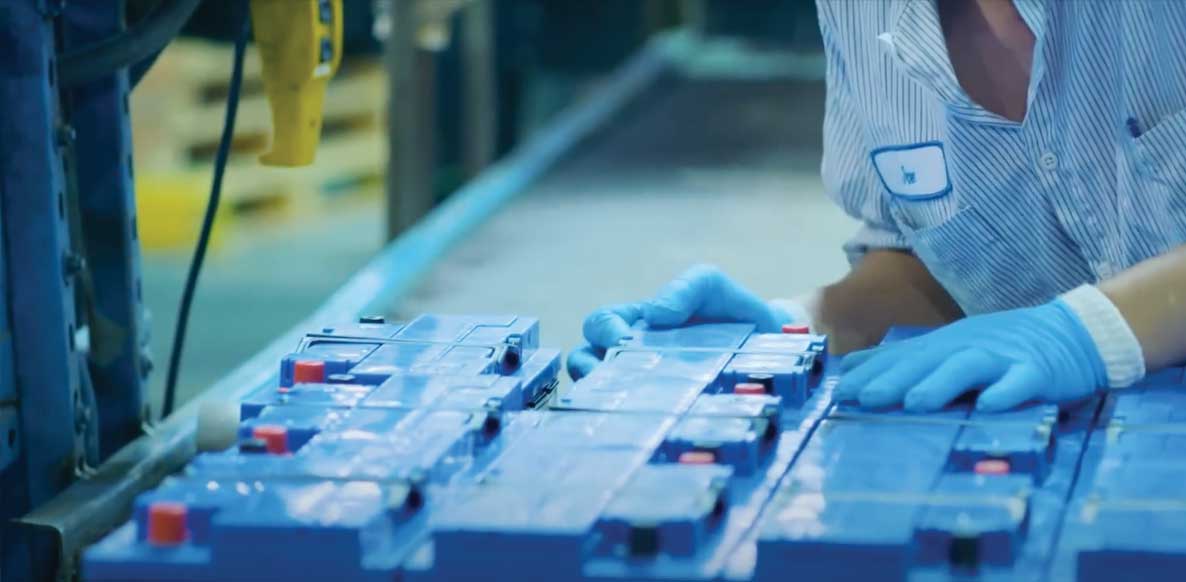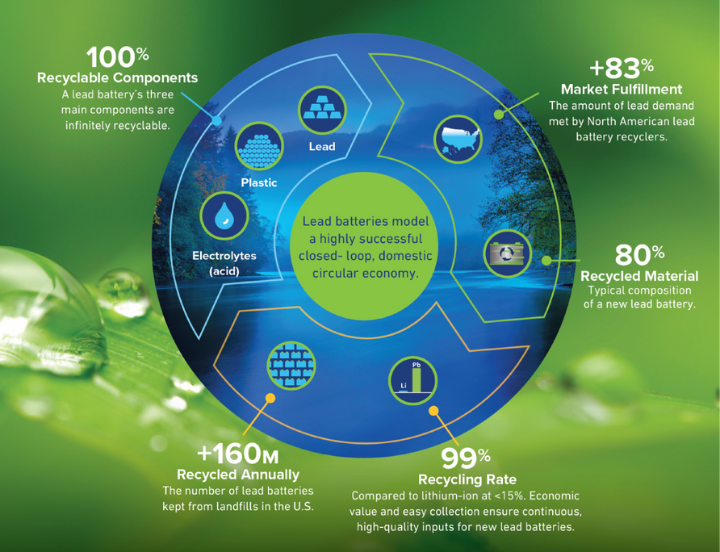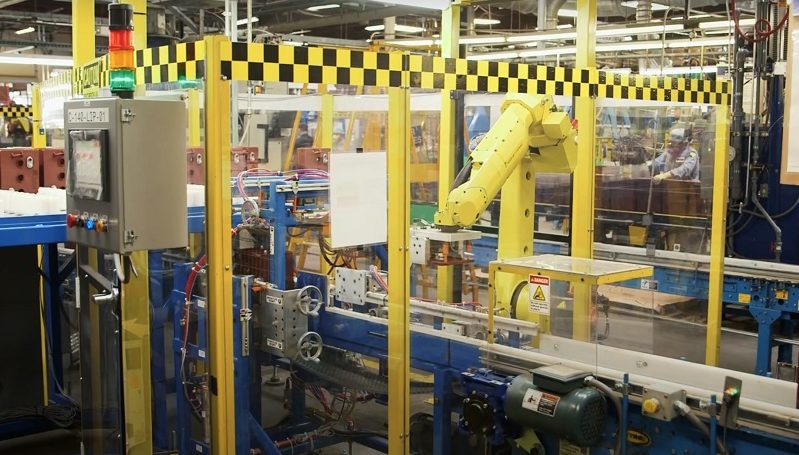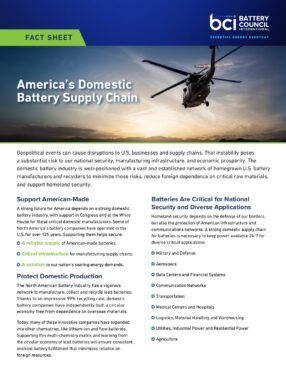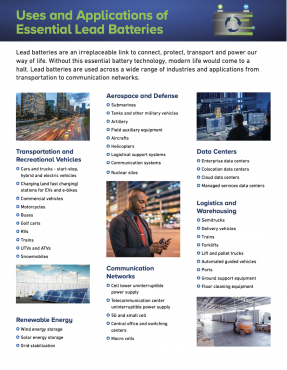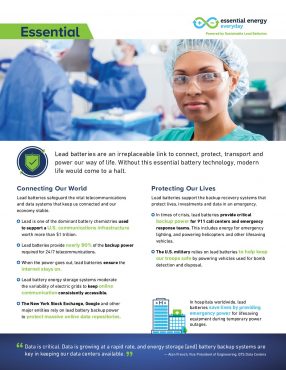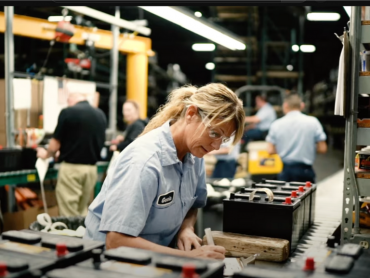The United States should not rely on unstable foreign countries to meet critical energy storage needs. The lead battery industry has an established network of domestic manufacturing, collection and recycling facilities. Together, they create a circular economy that ensures consistent lead battery fulfillment and quick scalability within the U.S.
Reliable and Proven Track Record
Lead batteries’ proven track record, cost-efficiency and unrivaled reliability make them the battery of choice for essential energy...

